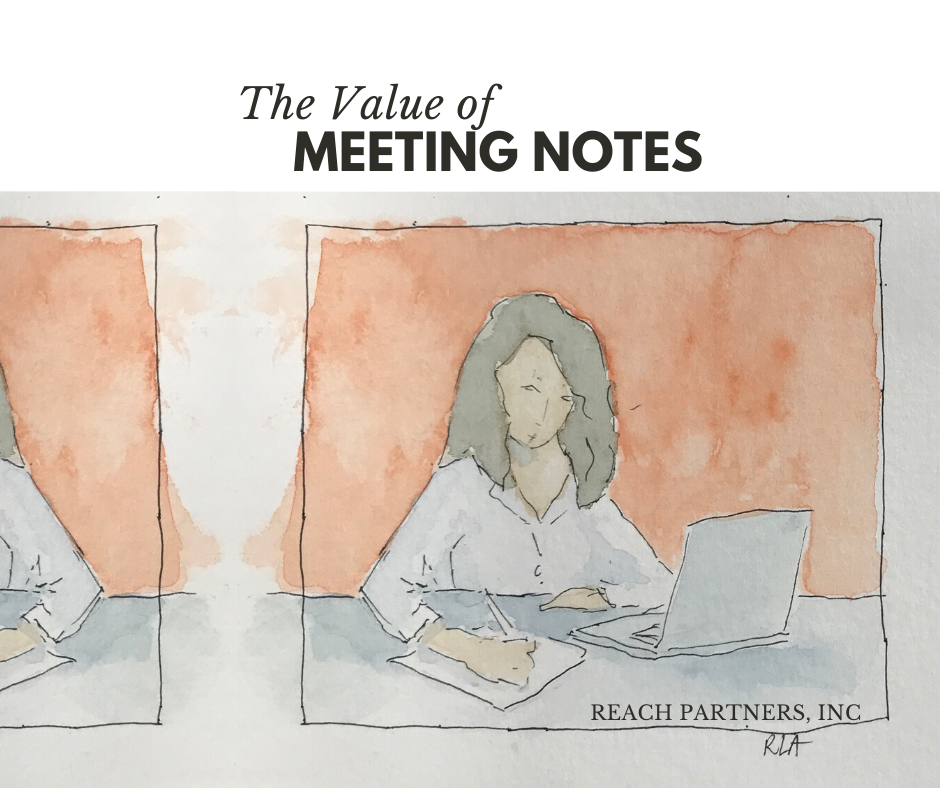|
If you’ve ever been asked to take minutes at a meeting and cringed, you’re not alone. When you’re designated the minute taker, it can feel daunting and overwhelming. How detailed do you need to be? Will you capture everything that needs to be documented? There’s no need to fret. Taking minutes isn’t as difficult as we think it should be. And it provides a crucial service to make sure activity doesn’t stop when the meeting is over. Simply defined, meeting minutes are a written record of what happened. Typically, the phrase brings to mind detailed re-enactments of what occurred at a governance meeting – what was said, who agreed to what, how a decision transpired. These are important documents that help us hold elected officials accountable and help us understand public policy, for sure.
Such details are neither practical nor necessary for most types of meetings. And yet, a brief summary of what happened and what needs to happen next is important. For many people, it may be helpful to change their vocabulary: Call these summaries meeting notes instead of meeting minutes. Meeting notes are a simplified form of meeting minutes. The goal is less about writing a flowery summary of a meeting and more about documenting what steps need to happen next. Notes should be focused on staff, ideas, and tasks. Ideally every meeting you attend has a purpose, an agenda (basically, a list of topics for discussion, brainstorming, decision-making, or review), and proposed outcomes. Completing the meeting with notes keeps everyone clear about what happened, what needs to be done, and who needs to do it. Sticking with the “less is more” mentality, meeting notes should include only a few things:
Assign somebody in the meeting to compile these notes. Then share with everyone who was invited to the meeting whether they attended or not. This gives attendees an opportunity to quickly correct information before everyone forgets what occurred. And it gives those who couldn’t attend a summary of what they missed. These notes also can be quickly reviewed and serve as a foundation for a recap before starting the next meeting, creating continuity and consistency between gatherings.
0 Comments
Your comment will be posted after it is approved.
Leave a Reply. |
Reach PartnersYour partners in leadership. Categories
All
Archives
July 2024
|
|
|
Reach Partners, Inc
3330 Fiechtner Dr. Suite 100 Fargo, ND 58103-2321 701-271-8170 Copyright (C) 2024 Reach Partners Inc.
|

